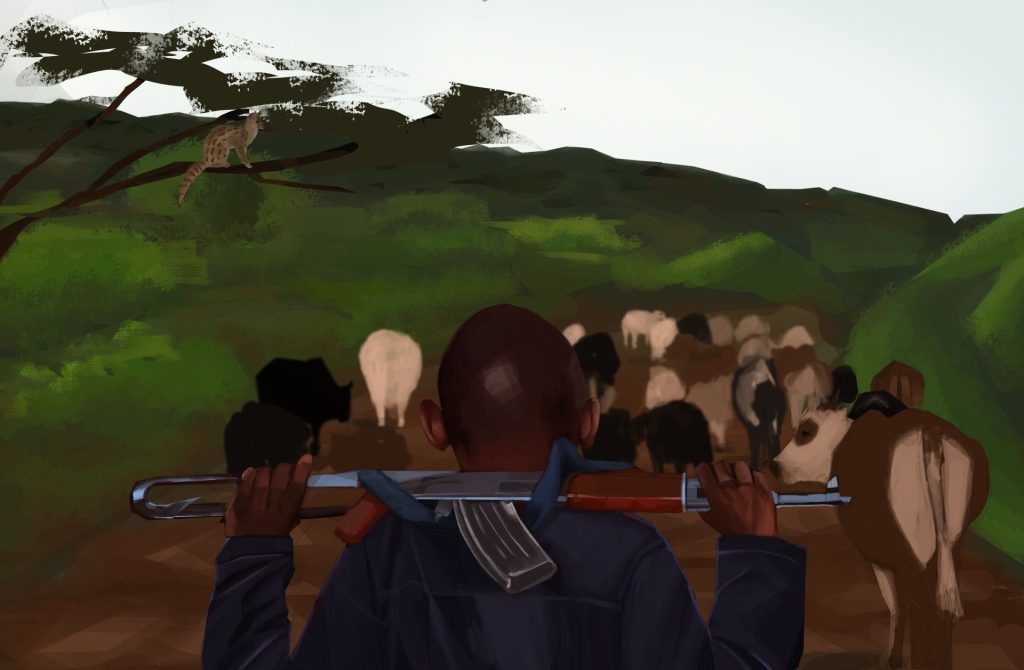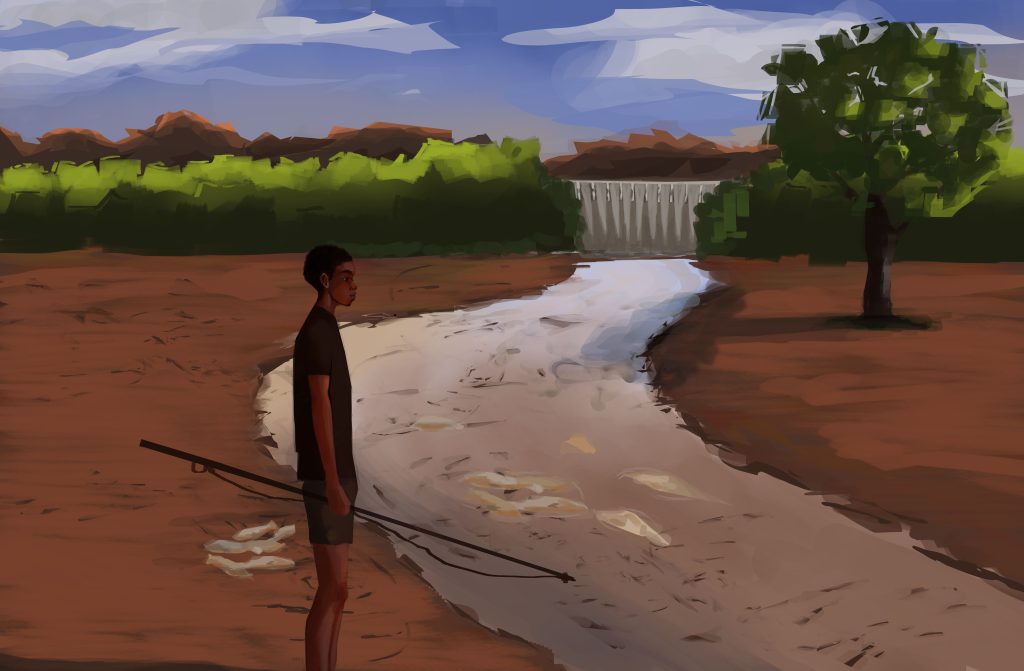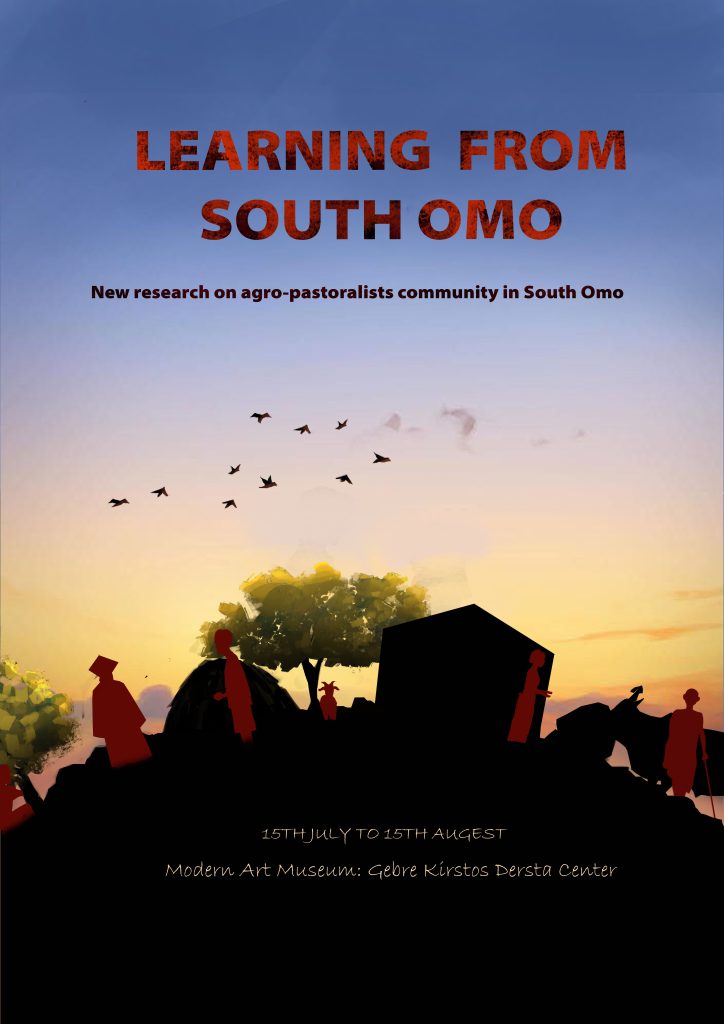Learning from Agro-Pastoralists in South Omo Zone
The inhabitants of the South Omo Zone, a lowland area close to the borders with Kenya and South Sudan, have faced rapid and unprecedented development in recent decades. Customary livelihoods – based on combinations of animal herding, small-scale agriculture and shifting cultivation – are being undermined by land-grabbing for sugar plantations, national parks and hydro-electric projects. Agro-pastoralist communities such as the Hamer, Nyangatom and Mursi are viewed as the final remnants of a disappearing world. Yet, far from lacking agency or knowledge, the people of South Omo present alternative narratives about their aspirations for development and worries for the future. The richness in expertise derives from their daily experience of their localities but also deep reflection on how it is changing.
Between 2023 and 2025 new learning from South Omo has been produced through two research programmes: Mursi Encounter Others (MEO) and Agro-Pastoralists Educate Others (APEO). Supported by scholars from SOAS University of London and the Institute of Peace and Security Studies at the University of Addis Ababa, more than seventy research projects covered a wide range of subjects. Topics were devised and projects led by researchers representing the Arbore, Banna, Bodi, Daasanach, Mursi, Nyangatom and Hammar communities. All results are wholly owned by the researchers themselves and appear here with their permission: this is research about people in South Omo, by people in South Omo, and for people in South Omo. This is a coalition between SOAS, IPSS and South Omo Theatre Company and supported by the Arts and Humanities Research Council.
(All featured images by Bethel Kebede (Instagram: @bethel.k.art))
Mursi Encounter Others
The Mursi (or Mun), a group of agro-pastoralists living in the Lower Omo Valley of southwestern Ethiopia, have found encounters with outsiders mostly painful, and often violent, in tune with most indigenous groups globally. Mursi customary livelihoods – cattle herding and shifting cultivation – are being undermined by tourism, industry and hydro-electric projects. Climate change further upsets the delicate ecology of the region. Access to healthcare, education, clean water and transport is extremely limited. Seen as dangerous and backward by many visitors, from their perspective outsiders attack and even kill them, steal their cattle and land, damage their environment, and photograph them with disdain.
Starting in 2023, the South Omo Theatre Company (SOT), the Institute for Peace and Security Studies at Addis Ababa University and SOAS University of London, have been supporting members of the Mursi community to undertake new research that challenges negative stereotypes and promotes more positive encounters with the outside world. The underlying logic for research, knowledge exchange and impact has been developed by innovators among the Mursi that puts them into key leadership positions in the core project team. The goal is to improve the relationship between the Mursi and outsiders from their perspective, transforming the terms of engagement with researchers, practitioners and policymakers, so that the Mursi and other pastoral groups across other nations in Africa can secure more peaceful, economically viable and environmentally safe futures.

Agro-Pastoralists Educate Others

Learning lessons from the MEO programme, Agro-Pastoralists Educate Others (APEO) extended opportunities for locally led research and advocacy to other marginalised ethnic groups in South Omo including Arbore, Dasenech, Hamer, Banna and Nyangatom. More than twenty small grants have been awarded on a competitive basis to allow local researchers to document the complex and little-know lives, livelihoods, culture and challenges of marginalized ethnic groups of South Omo Zone. Research topics, needs and advocacy messages have been determined by the researchers themselves, – you can read more about some the projects by clicking on the link below.
A key programme legacy is the establishment of a sustainable network of agro-pastoralist researchers able to engage and communicate with policymakers and advocate for change at regional, national and international levels. With 2026 designated by the United Nations as the International Year of Rangelands and Pastoralism there is no better time to support a movement for the voices of people in South Omo to be heard.
Learning from South Omo – Exhibition

Research findings from South Omo have been produced through two research programmes: Mursi Encounter Others (MEO) and Agro-Pastoralists Educate Others (APEO). Supported by scholars from SOAS University of London and the Institute of Peace and Security Studies at the University of Addis Ababa, more than seventy research projects about challenges and possible solutions were devised and projects led by researchers representing the Arbore, Banna, Bodi, Daasanach, Mursi, Nyangatom and Hammar communities. All results are wholly owned by the researchers themselves and appear here with their permission. This is a coalition between SOAS, IPSS and South Omo Theatre Company and supported by the Arts and Humanities Research Council.
Findings from the MEO and APEO programmes were presented in a series of events and workshops in Dimeka (South Omo Zone), Jinka (Ari Zone) and at Addis Ababa University in July and August 2025. From 15 July to 15 August 2025 the research findings from South Omo were exhibited at the Modern Art Museum of the Gebre Kristos Desta Centre in Addis Ababa. The exhibition will be showing in the SOAS Gallery London in October to December 2025.
